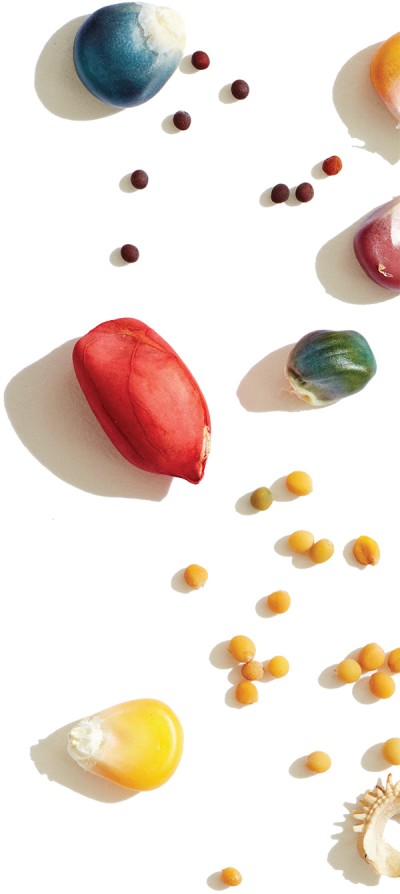
Photo: Winnie Au
Matthew Goldfarb, MBA’10, says he jumps out of bed every morning at 3 or 4, eager to work in the fields. He and his partner, Petra Page-Mann, started Fruition Seeds, an organic seed company in New York’s Finger Lakes region, in 2012.
Most seed companies either distribute, produce, or breed seeds. “Fruition is unique because we do all three,” says Goldfarb. “And there are few seed companies in the Northeast because of the challenging climate. Our focus is on northern hardiness, primarily New England and New York.”
The most basic part of the business is growing plants to seed maturity, which can take several months to several years, depending on the plant. Rather than taking the lettuce to market, for example, Fruition examines each plant for certain traits and characteristics such as disease resistance, color, and flavor. Desirable plants are allowed to flower, pollinate, and produce seeds. “Sixty percent of our seed is grown on our fields,” Goldfarb says, “and we collaborate with a dozen organic farmers and institutions like the University of Wisconsin and Cornell on various projects.”
Fruition owns 13 acres among four noncontiguous farms. “It’s important to keep certain crops isolated, one or two miles apart, so they won’t cross-pollinate,” says Goldfarb. Because Fruition is committed to organic land management and disease prevention, crops are rotated. “We produce and breed seed on only three acres at a time,” explains Goldfarb. “Most of the time the fields are planted with quick-growing cover crops with lots of biomass, such as oats, clover, and buckwheat, which we till down to add nutrients back to the soil.”
Once the seeds have been harvested, Fruition packages them all by hand. “We use very specific scoops and scales for seeds,” says Goldfarb. “It’s a time-consuming process, completely year-round.” Interestingly, winter is Fruition’s busiest season, packaging and selling seeds. The slowest time is late June to early July, after everything has been planted but it’s too early to harvest.
“We’re excited now about a new brand of sweet pepper, the Habanada, a no-heat habanero developed at Cornell,” says Goldfarb, “and also a particular variety of peanut that comes from Michigan’s Upper Peninsula. We grew it last year as a seed crop. It’s unusual because it’s hardy in cold weather.”
